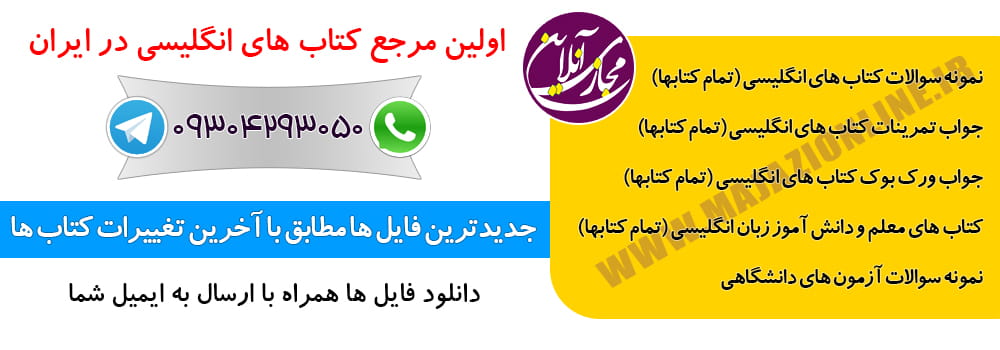از حالت های کوتاه در زبان محاوره ای استفاده می شود. با این وجود انگلیسی نوشتاری هم رفته رفته غیررسمی تر می شود و شاهد استفاده از فرم های کوتاه در زبان محاوره ای هم هستیم.
حالت های کوتاه جملات مثبت
I'm --- I am --- مثال: I'm waiting for my friend.
I'll --- I will --- مثال: I'll see you tomorrow.
I'd --- I had / I would --- مثال: I'd better leave now. OR I'd already eaten by the time he arrived.
I've --- I have --- مثال: I've worked here for many years.
You're --- You are --- مثال: You're joking!
You'll --- You will --- مثال: You'll be sorry!
You'd --- You had / would --- مثال: You'd left before he arrived, hadn't you? OR You'd better hurry up.
You've --- You have --- مثال: You've been to London many times.
He's --- He is / has --- مثال: He's on the phone now. OR He's been playing tennis since 10 this morning.
He'll --- He will --- مثال: He'll be here tomorrow.
He'd --- He had / would --- مثال: He'd prefer to meet you later in the week. OR He'd finished before the meeting began.
She's --- She is / has --- مثال: She's watching TV at the moment. OR She's had a lot of trouble lately.
She'll --- She will --- مثال: She'll be at the meeting.
She'd --- She had / would --- Example: She'd been working for two hours when he telephoned. OR She'd like to have a glass of wine.
It's --- It is / has --- مثال: It's been long time since we saw each other last. OR It's very difficult to concentrate.
It'll --- It will --- مثال: It'll be here soon.
It'd --- It would / had --- مثال: It'd be difficult to say no. OR It'd been a long time.
We're --- We are --- مثال: We're working hard on the Smith account this week.
We'll --- We will --- مثال: We'll begin when he arrives.
We'd --- We had / would --- مثال: We'd better hurry up if we want to catch the train. OR We'd finished the meeting before you arrived.
We've --- We have --- مثال: We've been waiting for you!
They're --- They are --- مثال: They're studying German this afternoon.
They'll --- They will --- مثال: They'll finish soon if they concentrate.
They'd --- They had / would --- مثال: They'd eaten their lunch when she stopped by to say hello. OR They'd rather not come to the meeting.
They've --- They have --- مثال: They've just purchased a new home.
There's --- There is / has --- مثال: There's a hotel in the next town. OR There's been too many telephone calls today!
There'll --- There will --- مثال: There'll be a price to pay!
There'd --- There had / would --- مثال: There'd better be a good explanation for this. OR There'd be some reason for that.
That's --- That is / has --- مثال: That's been on my mind lately. OR That's why I can't come.
That'll --- That will --- مثال: That'll happen sooner than you think.
That'd --- That had / would --- مثال: That'd be the reason why. OR That'd happened before my time.
حالت های کوتاه جملات منفی
aren't --- are not --- مثال: They aren't coming next week.
can't --- can not --- مثال: I can't understand you.
couldn't --- could not --- مثال: He couldn't get his shoes on!
didn't --- did not --- مثال: We didn't visit Rome. We went straight to Florence.
doesn't --- does not --- Example: He doesn't play golf.
don't --- do not --- مثال: They don't like cheese.
hadn't --- had not --- مثال: I hadn't thought of that!
hasn't --- has not --- مثال: She hasn't telephoned yet.
isn't --- is not --- مثال: She isn't listening to you.
mustn't --- must not --- مثال: Children mustn't play with fire.
needn't --- need not --- مثال: You needn't worry about that.
shouldn't --- should not --- مثال: You shouldn't smoke cigarettes.
wasn't --- was not --- مثال: I wasn't joking when I said that.
weren't --- were not --- مثال: They weren't invited to the party.
won't --- will not --- مثال: I won't be able to attend the conference.
wouldn't --- would not --- مثال: She wouldn't be surprised if he showed up at the party.
منبع: www.majazionline.ir
























در صورت بروز هرگونه مشکل در سایت یا دانلود فقط به شماره 09304293050 در تلگرام پیام دهید IDTelegram: @majazionline1